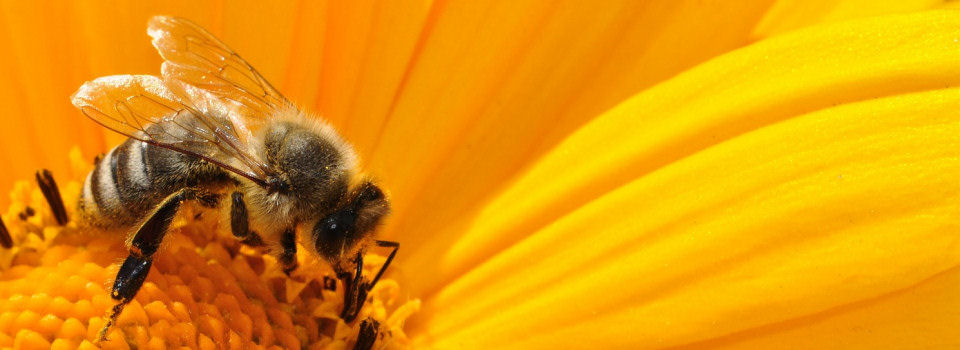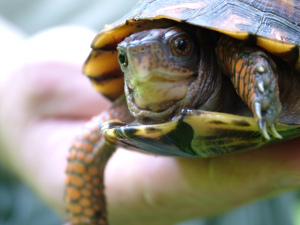Learn New Ways To Get Involved Outdoors!
NOTE: This page will be updated regularly with new ideas so please check back!
There are many ways to get involved outdoors, from hiking on your own to joining a group. This page provides you with ideas and suggestions, for all ages, about how to get involved inside and outside. Keep checking back for new ideas and outdoor adventures.
*For Outdoor Educators and Teachers:
If you're looking for citizen science, or outdoor activities that meet NGSS and Common Core standards then please visit my blog series on Scistarter called "Citizen Science in the Classroom." I feature different citizen science projects, describe them, and provide information on how they can meet the standards.
Cornell Ornithology Lab Ebird (http://ebird.org/content/ebird/)
- Ages: Ages 8+ (students and adults)
- Time Commitment: You you can decide how much to commit to observations.
- Cost: Free
- Main Concept: Cornell Ornithology has been pioneering citizen science projects with activities such as project Feederwatch and e-bird. The e-bird program allows you to set up an account and upload bird sightings and information. The great thing is that there are many, many other functions on their website, and it's mobile (there's an app for your phone). For students and teachers you can download data, and for those looking to go birding you can see where birds are, even down to a specific species. This information contributes to a larger study of avian population trends and helps scientists figure out what's going on with our feathered friends.
Geocaching (http://www.geocaching.com/)
- Ages:Ages 5+ (students and adults)
- Time Commitment: You you can decide how much to commit to observations.
- Cost: Free, but you'll need a GPS capable unit or phone.
- Main Concept: Geocaching blends the worlds of technology, treasure hunting, and technology into one activity. By visiting Geocache.com, you can type in your address and find the longitudes and latitudes of geocaches near you. A geocache is a hidden box with a log and prizes. You use your phone or GPS unit to find it, log in, take a prize and leave a prize. There are trackable coins you can find in some boxes, puzzles to solve, or clues to another geocache. There are geocaches for museums, canoe trails, scuba diving, and hiking. Some are easy and some harder. Overall, it's a great way to get outdoors and get kids interested in technology, geography, and nature.
Journey North (http://www.learner.org/jnorth/)
- Ages: All Ages (students and adults)
- Time Commitment: You can decide how much to commit to observations.
- Cost: Free
- Main Concept: Journey North is an extensive resource focused on global citizen science. They have great resources for teachers, learning the basics about organisms, and posting your own observations (online or through an app) looking at migration and blooming of organisms. My personal favorites include making observations of humming birds, monarchs, tulip blooming, and bald eagles. They also have a variety of animal cams to check out too. This citizen science program is great for entire classrooms or even individuals.
The National Reptile & Amphibian Advisory Council (http://www.nraac.org/)
- Ages: Adult
- Time Commitment: You decide, you can attend their conferences or volunteer
- Cost: Free
- Main Concept: This group is dedicated to establishing laws and regulations regarding handling and working with reptiles, from pets to professional trade. Their main focus is the legal end of keeping reptiles and amphibians, and laws about their protection. They mostly function through social media, and Facebook (https://www.facebook.com/NRAACORG) as well as through national symposiums.
North American Orchid Conservation Center (http://northamericanorchidcenter.org/)
- Ages: Teen to Adult
- Time Commitment: Depends
- Cost: You may donate your time or money.
- Main Concept: Established by the Smithsonian Environmental Research Center and the United States Botanic Garden, along with many more high profile partners. This is a fledgling organization dedicated to the preservation or native North American orchids, including protocols for propagation and creating a seed-bank of orchids and their associated fungus. You can get involved by donating or by joining one of their member organizations and helping with their orchid conservation efforts. Click here for a list of organizations http://northamericanorchidcenter.org/partners/.
Project Noah (http://www.projectnoah.org/)
- Ages : 5 to Adult
- Time Commitment: Depends
- Cost: Free, but you'll need a cell phone or camera and a computer.
- Main Concept: Project Noah is a visual sighting project that asks users to join "spotting challenges" by taking pictures of plants and wildlife and uploading them to their website. It's fun to help scientists and researchers with your spottings, and if you don't know what a creature is then others on the site will help (scientists and experts). You earn virtual badges as you go along. You can also create regional or even classroom challenges.
Project FeederWatch-Cornell Ornithology Lab (http://feederwatch.org/)
- Ages: All ages and birding abilities, great for classes, home school, individuals, seniors, and beginning birders
- Time Commitment: You decide, usually 2x a week
- Cost: $15 non-members, $12 members for Cornell Ornithology Lab
- Main Concept: Cornell Ornithology Lab has established a long running citizen science project to track winter bird populations. You can participate by registering for a kit, setting up a feeder, and then monitoring the birds. You then take your data and upload it online. The data helps track over 100 species of birds in North America, and establishes baseline information about the health of their populations and where they are located. The data are used by scientific magazines such as The Proceedings of the National Academy of Sciences, Audubon Magazine, and Birder's World.
SciStarter (http://scistarter.com/)
- Ages: All Ages
- Time Commitment: You decide.
- Cost: Free
- Main Concept: This is a great place to start your journey, looking into citizen science projects. If you're not sure what you would like to do, begin by using this website to browse many different options, from what you can do in your home to schools, forests, parks, aquariums, and more. The database is quite extensive and a good place for teachers to look for supporting activities for their classrooms.


